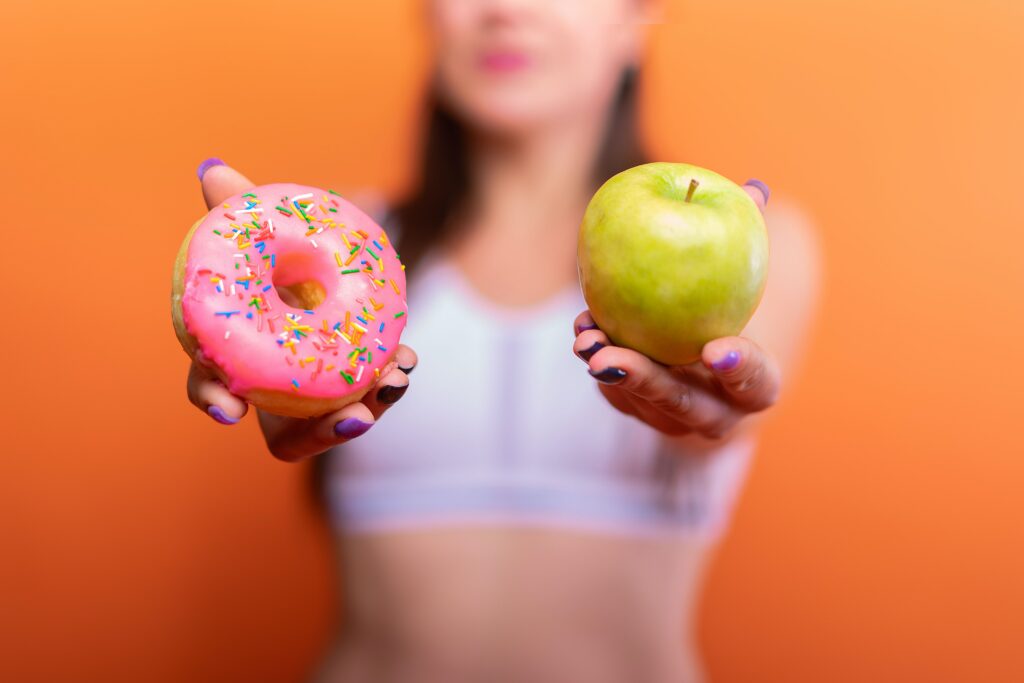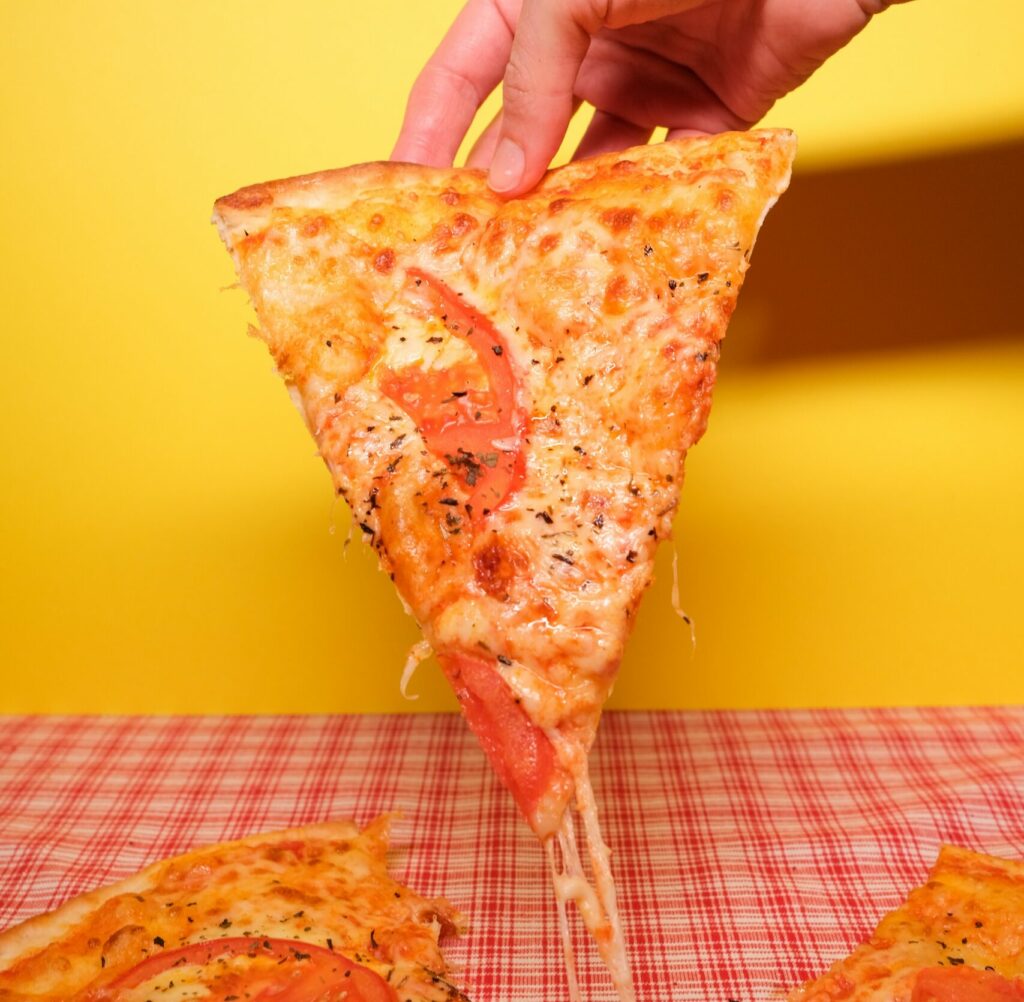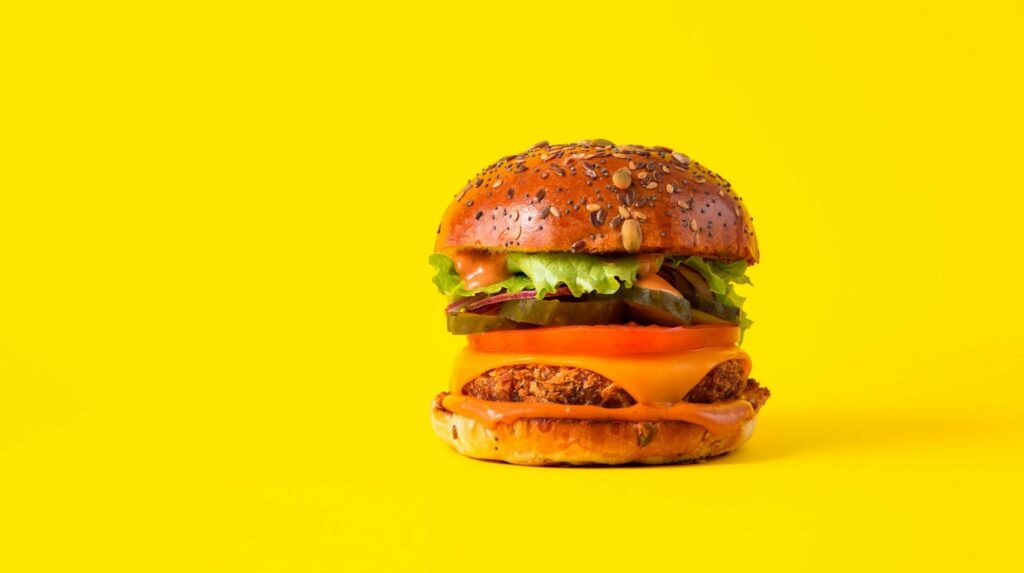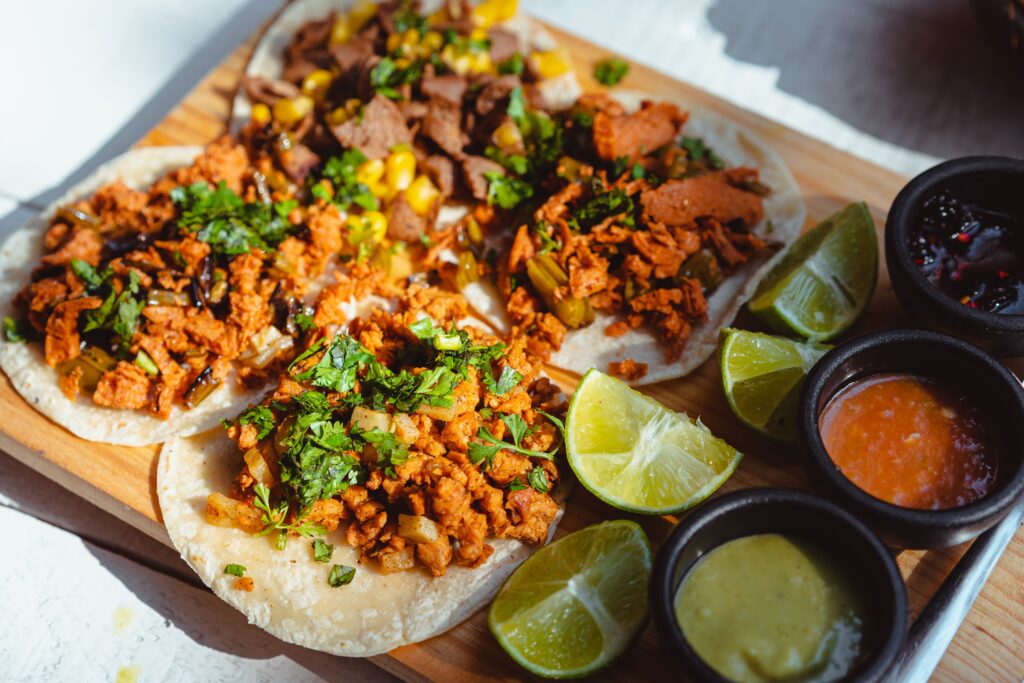The best BBQ Delivery Boxes in the UK from small sustainable British Farms
Written in collaboration with The Ethical Consumer
We are in the midst of a food revolution. One in three people in the UK are actively trying to cut their meat consumption. Around 1.2 million people in the UK are vegetarian and half of those are vegan. In fact, the number of UK vegans has quadrupled in recent years.
Emma Oddie from Ethical Consumer Magazine explores the plant-powered world of veganism. She shares top tips to enjoying a balanced, sustainable vegan diet and reveals the pitfalls that might trip us up along the way…
Vegan junk food: not all plant-based products are created equal
According to the way the carbon footprint of our food is currently calculated, vegans produce one tonne of carbon dioxide emissions a year on average. This is less than half of the 2.6 tonnes produced by high volume meat-eaters. So, we know that having a more plant-based diet can help to cut our carbon.
Veganism has come under the microscope for a few years now and naysayers look to criticise the environmental impact of soya beans or rice. But, the truth is that any plant-based meat or dairy alternative is much better for the environment than industrially-produced animal-based alternatives.
But, before we fly down the aisle throwing every vegan product in our trolley with glee, there are a few things to take into consideration. Indeed, some vegan products are better than others: for your health, for the workers that make them and for the environment.
Here are just a few considerations when you’re choosing a plant-based alternative.

Vegan junk food: What is it made from?
It’s not just animal rearing that carries environmental consequences. Crops also require land, water and people to produce and manufacture the products and some plants carry more issues than others.
Vegan meat alternatives: what you need to know about soya
Soya is probably the most logical place to start. Soya production is often linked to deforestation, with so much of the global crop coming from South America. However, only 6% of the soya produced in Brazil and linked to deforestation is destined for human consumption. Most is used as cattle feed. In fact, you’ll indirectly consume more soya by eating meat than you ever would through soya-based milk or meat substitutes.
If you want to avoid soya in vegan meat alternatives, look for products made from lupin beans. This soya-like bean grows in cold climates, so it can be grown locally to cut down the transportation miles. The beans contain around the same amount of protein as soya. Plus they offer the full range of essential amino acids.
Vegan dairy: what you need to know about cheese and milk
Coconuts are used in nearly every type of vegan cheese. It creates that solid creamy texture that melts just like dairy cheese. For this reason, coconuts are in demand but this is putting pressure on an unfair system. Nearly all coconuts are grown in Indonesia, the Philippines and India. Most producers are smallholders, living in extreme poverty and earning, on average, less than $1 a day. Look for Fair Trade options to make sure that you are funding a fair wage for farmers.
Cashews are a good substitute for coconuts in vegan cheese. But the shelling, if done by hand, can release harmful substances that can burn skin and even cause permanent damage. Happy Cheeze produces cashew-based vegan cheese that is mechanically shelled. Tyne Chease carries out regular audits to ensure high safety standards for workers.
For a full review sustainability profile of each plant used in vegan milk and cheese, check out Ethical Consumer’s guides to plant-based milk and vegan cheese.

Vegan junk food: Who makes it?
It might surprise you that a lot of the vegan milk, cheese and meat brands available in the supermarket aisles are actually owned by dairy and meat producers. Whatever your reasons for becoming vegan, it’s unlikely that you’ll be happy to line the pockets of parent companies that invest in the meat and dairy industry. Just a few meat- and dairy-backed vegan brands are mentioned below. Again, you can find a comprehensive list on Ethical Consumer’s report into this industry.
Vegan Brands that may not align with your ethics
- Alpro and Provamel plant-based milk brands are owned by Danone, a huge dairy brand with nearly a quarter of the global market. Danone has been the target of several boycotts due to its aggressive marketing of baby formula.
- The Green Butcher meat alternative brand is owned by Tulip Ltd. This is the UK’s largest pig producer and the target of continuous protests and petitions due to inhumane practices at its site. The parent company, JBS, is linked to illegal deforestation, animal welfare violations, modern-day ‘slave-labour’ practices and politician bribing.
- Violife vegan cheese is owned by Upfield, which is owned by KKR. KKR is a company that invests in pharmaceutical companies that test on animals.
Vegan Brands to look out for:
The good news is that there are lots of smaller, solely vegan brands out there:
- Meat substitutes: Taifun, Tofurky, Upton Naturals, VBites, Dragonfly, Beyond Meat or Fry’s.
- Plant-based milk: Lucy Bee, Plamil, Good Hemp, Rebel Kitchen, The Bridge, Oatly, Sproud, Blue Diamond, Vita Coco and Koko.
- Vegan cheese: New Roots, Tyne Chease, Happy Cashew or Mouse’s Favourite.

Vegan junk food: What’s in it?
As more vegan brands explode into the market, the spotlight is on the ingredients that make up these products. Vegans know that it’s important to achieve a balanced diet and there are several considerations to take into account when it comes to vegan products, among them salt levels and protein.
Vegan meat alternatives and salt
Action on Salt has recently highlighted the high levels of salt present in many vegan meat alternatives. They report five out of six product categories have higher levels of salt than their meat equivalents. Plus, 75% of all products do not meet Government salt reduction targets. Salt consumption is linked to high blood pressure, which is responsible for 60% of strokes and 50% of heart disease. These are two of the biggest killers in the UK. The group is now calling on the Government to mandate salt targets so that all manufacturers have to comply.
In the meantime, check the labels carefully on vegan meat products. Also, consume high salt ingredients in moderation. Get in touch with your favourite vegan brands to ask them to lower the amount of salt that they put in their products.
Vegan protein sources
Protein is another area to consider when cutting out meat and dairy products. Although it is easy to get all the protein you need from plants, it’s important to include essential amino acids, those protein building blocks that your body can’t make.
- Soya and lupin beans contain high levels of proteins and the full range of essential fatty acids.
- Lentils, chickpeas, kidney beans and peanuts contain high levels too.
- Some other meat alternatives, such as jackfruit, despite having a decidedly meaty texture, contain only low levels.
- Plant-based milk, especially oat, rice and coconut may contain only low levels of proteins. So, if you’re looking to up your protein intake from this source, look for soya or pea-based milk.
There is plenty of information out there on protein and other dietary components from trusted sources, such as the Vegetarian Society and The Vegan Society. Remember to look at the labels and aim to eat the recommended 50g of protein a day, containing a balance of essential amino acids.

How to follow a vegan diet: an essential tip
The most important thing to remember when following a wholly vegan or more plant-based lifestyle is to enjoy it.
Veganism opens a whole new perspective on food, a whole host of different flavours and ingredients and the chance to do good with every meal you make.
There are loads of great vegan recipe books and websites and a wider range of vegan options in restaurants and supermarkets. So, get stuck in and enjoy the journey.
Originally published in 2022


